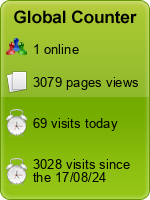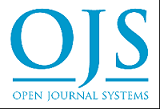Improving midwives' knowledge and attitudes in providing lactation education based on local wisdom of the Bugis ethnic in Indonesia
DOI:
https://doi.org/10.33024/minh.v7i8.630Keywords:
Attitudes, Bugis Ethnic, Knowledge, Lactation Education, Local Wisdom, MidwivesAbstract
Background: The current rate of exclusive breastfeeding remains low due to several factors, including social and cultural changes, psychological factors, lack of education provided by healthcare workers, and the increasing promotion of formula milk as well as misinformation to the public. Therefore, it is necessary to have productive midwives who provide optimal healthcare services to improve the health status of infants. Currently, the healthcare services provided by midwives can also be carried out through independent practice. A midwife does not only provide obstetric services from a biological perspective but also addresses social, cultural, and spiritual needs.
Purpose: To evaluate the impact of providing lactation education based on local wisdom in improving midwives' knowledge and attitudes in the Bugis ethnic in Indonesia.
Method: A quasi-experiment method, specifically a pre-test and post-test with a control group design. The study population consists of midwives who have Independent Midwifery Practice in 15 districts of Makassar City. The sample obtained using purposive sampling. The sample size was 30 midwives, consisting of 15 midwives in the treatment group and 15 midwives in the control group.
Results: The N-Gain Score test showed a value of 72.89% for the treatment group, while the control group scored 21.89%. The paired t-test showed an Asymp Sig (2-tailed) value of 0.000, which is less than the probability value of 0.05 for the treatment group.
Conclusion: The use of printed and online pocketbooks for lactation education integrated with the cultural values of Sipakatau, Sipakalebbi, and Sipakainge in the exclusive breastfeeding program by independent midwives is more effective compared to counseling alone, which is less effective in the control group. Further testing concluded that there was a significant difference between the pre-test and post-test scores in the treatment group, indicating an increase in the midwives' knowledge.
References
Adiputra, I. M. S., Trisnadewi, N. W., Oktaviani, N. P. W., Munthe, S. A., Hulu, V. T., Budiastutik, I, & Suryana, S. (2021). Metodologi Penelitian Kesehatan. Yayasan Kita Menulis.
Badawi, B., Maryam, A., & Elis, A. (2023). Peran Pola Asuh Dato’nene’(Grandparenting) Terhadap Fenomena Stunting Pada Balita Berbasis Budaya Siri’na Pacce. Jurnal Ners, 7(2), 1449–1454.
Elis, A., Mustari, R., & Marlina, M. (2020). The Role Of Presenting Exclusive Breastfeeding For The Prevention Of Stunting Based On The Culture Of Tudang Sipulung. Strada Jurnal Ilmiah Kesehatan, 9(2), 1230–1237.
Ernawati, Y., Afriyana, Y., Ardhanariswari, Z., Noviani, I., & Puspitasari, Y. (2022). Strategi Peningkatan Asi Eksklusif Dengan Media Buku Saku Di Puskesmas Balowerti Kediri. Jurnal Kreativitas Dan Inovasi (Jurnal Kreanova), 2(1), 18–24.
Hendri, H. (2019). Peran Pola Asuh Orang Tua Terhadap Pembentukan Konsep Diri Pada Anak. At-Taujih: Bimbingan Dan Konseling Islam, 2(2), 56-71.
Idris, F, P. (2020). Pemberian Asi Eksklusif : Kajian Teoretis Tentang Peran Masyarkat Dan Budaya Dalam Pendidikan Kesehatan. Pena Persada. Jawatengah.
Ihudiebube-Splendor, C. N., Okafor, C. B., Anarado, A. N., Jisieike-Onuigbo, N. N., Chinweuba, A. U., Nwaneri, A. C., & Chikeme, P. C. (2019). Exclusive breastfeeding knowledge, intention to practice and predictors among primiparous women in Enugu South‐East, Nigeria. Journal of pregnancy, 2019(1), 9832075.
Iliadou, M., Lykeridou, K., Prezerakos, P., Swift, E. M., & Tziaferi, S. G. (2018). Measuring the effectiveness of a midwife-led education programme in terms of breastfeeding knowledge and self-efficacy, attitudes towards breastfeeding, and perceived barriers of breastfeeding among pregnant women. Materia socio-medica, 30(4), 240.
Khaeruddin, K., Aulia, T., & Pratama, R. A. (2022). Falsafah Nilai Budaya 3s (Sipakatau, Sipakainge, Sipakalebbi) Pada Masyarakat Suku Bugis.
Khotimah, K., Satillah, S. A., Fitriani, V., Miranti, M., Maulida, M., Hasmalena, H., Pagarwati, L. D. A., & Zulaiha, D. (2024). Analisis Manfaat Pemberian Asi Eksklusif Bagi Ibu Menyusui Dan Perkembangan Anak. Paudia: Jurnal Penelitian Dalam Bidang Pendidikan Anak Usia Dini, 13(2).
Maryam, A., Elis, A., & Mustari, R. (2023). Hubungan Asi Eksklusif Dengan Kejadian Stunting Pada Balita. Healthy Tadulako Journal (Jurnal Kesehatan Tadulako), 9(1), 87–93.
Ministry of Health Republic of Indonesia. (2018). Hasil Utama Riskesdas 2018. Jakarta: Kemenkes RI.Retrieved from https://r.search.yahoo.com/_ylt=AwrKErH7xCFn_QEAW.7LQwx.;_ylu=Y29sbwNzZzMEcG9zAzMEdnRpZAMEc2VjA3Ny/RV=2/RE=1731475964/RO=10/RU=https%3a%2f%2fkemkes.go.id%2fapp_asset%2ffile_content_download%2fprofil-kesehatan-indonesia-2018.pdf/RK=2/RS=Af6lQcnXtZRLdSeXSCdqYRrnToQ-
Nidaa, I., & Krianto, T. (2022). Scoping Review: Faktor Sosial Budaya Terkait Pemberian Asi Eksklusif Di Indonesia. Jurnal Litbang Kota Pekalongan, 20(1).
Ningsih, N. A., Machmud, N., & Sambeko, S. (2023). Pemberian Asi Eksklusif Di Wilayah Kerja Puskesmas Sudiang Raya Kota Makassar. An-Nadaa: Jurnal Kesehatan Masyarakat (E-Journal), 10(2), 165–170.
Nur, R. J., Wildan, D., & Komariah, S. (2023). Kekuatan Budaya Lokal: Menjelajahi 3s (Sipakatau, Sipakalebbi, Dan Sipakainge’) Sebagai Simbol Kearifan Lokal. Mimesis, 4(2), 166–179.
Obey, I. (2023). Digitalisasi Sistem Kesehatan Nasional Mencegah Stunting Guna Mewujudkan Indonesia Sehat. Lembaga Ketahanan Nasional Republik Indonesia.
Priadana, M. S., & Sunarsi, D. (2021). Metode Penelitian Kuantitatif. Pascal Books.
Ristini, R& Andhikatias, A.(2024) Pengaruh Pendidikan Kesehatan Dengan Media Buku Saku Terhadap Pengetahuan Ibu Hamil Tentang Asi Eksklusif Di Pmb Dwi Ristini. Other Thesis. Universitas Kusuma Husada Surakarta.
Simanjuntak, B. Y., & Wahyudi, A. (2021). Peningkatan Pengetahuan Dan Sikap Ibu Prakonsepsi Melalui Edukasi Seribu Hari Pertama Kehidupan: Studi Kuasi-Eksperimental. Jurnal Media Gizi Indonesia, 16(2), 96–105
Suriyani, A. (2024). Cultural Influences On Pregnancy Practices In The Sulawesi Region: A Literature Review. Journal Of Humanities And Social Studies, 2(02), 829–840
Susilawati, E., Yanti, Y., & Helina, S. (2022). Bidan, Asi Eksklusif, Dan Stunting Peran Bidan Sebagai GardaTerdepan Pendukung Keberhasilan Asi Eksklusif Pada Ibu Menyusui Sebagai Langkah Pencegahan Stunting. Taman Karya.
Tomori, C. (2022). Overcoming Barriers To Breastfeeding. Best Practice & Research Clinical Obstetrics &Gynaecology, 83, 60–71.
Us, H., & Safitri, M. E. (2022). Buku Ajar Manajemen Kontrol Dan Kualitas Pelayanan Kebidanan. Penerbit NEM.
Widyawati, S. A., Afandi, A., & Wahyuni, S. (2024). Faktor Yang Mempengaruhi Pemberian Asi Eksklusif: Factors Correlation Exclusive Breastfeeding. Indonesian Journal Of Midwifery (Ijm), 7(1), 106–114
Downloads
Published
How to Cite
Issue
Section
License
Copyright (c) 2024 Malahayati International Journal of Nursing and Health Science

This work is licensed under a Creative Commons Attribution-ShareAlike 4.0 International License.









